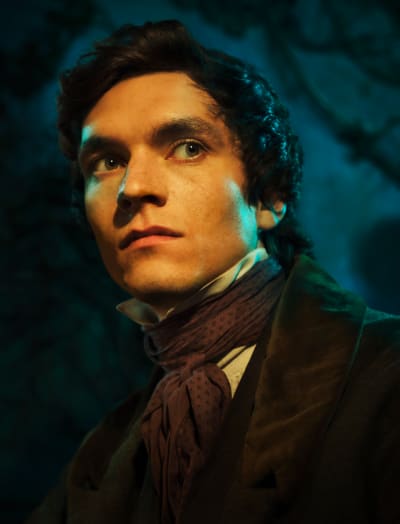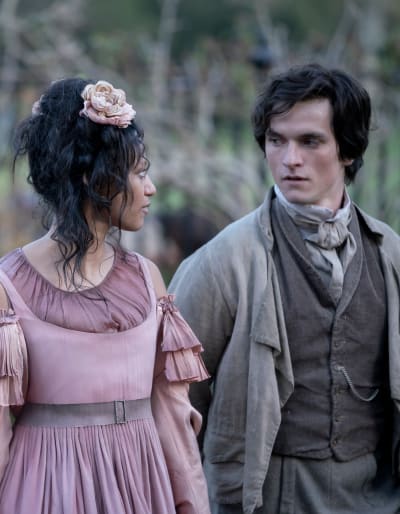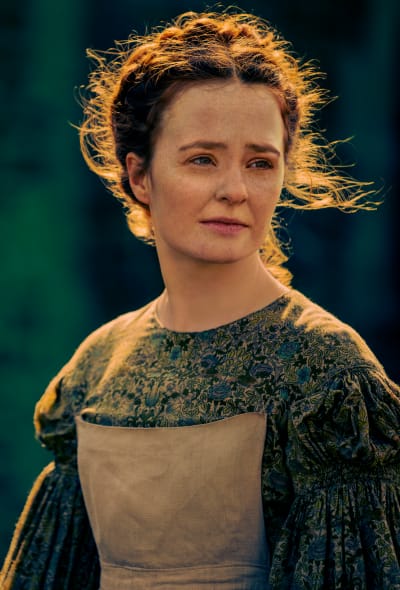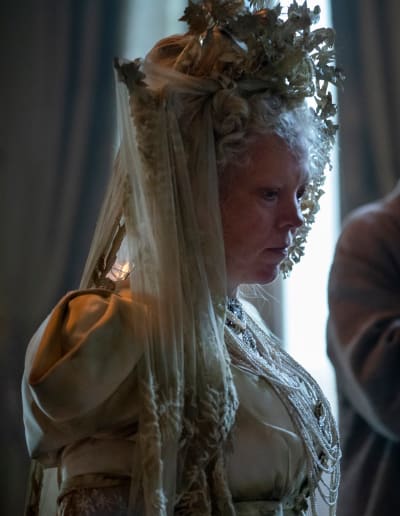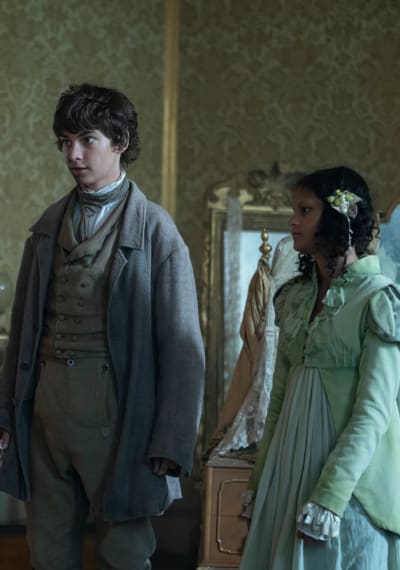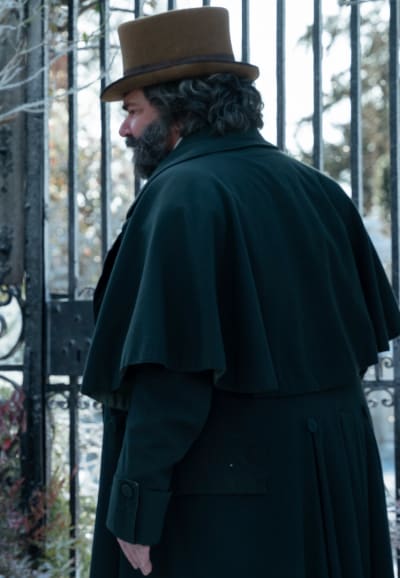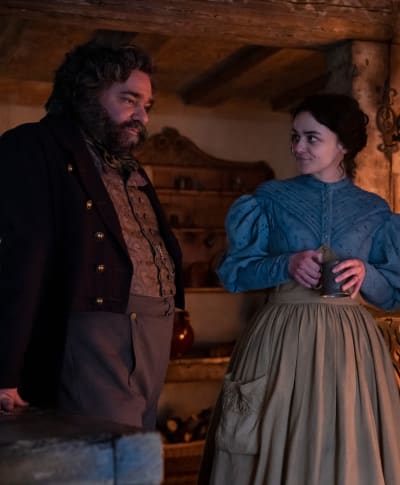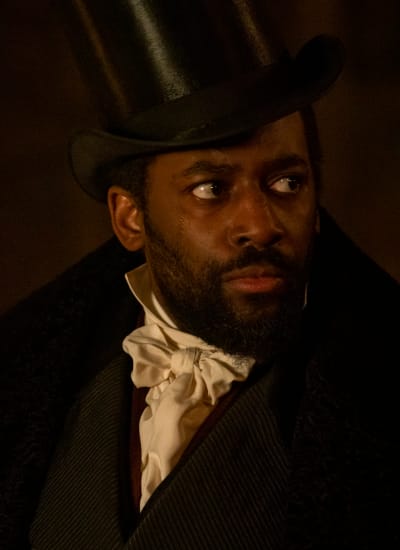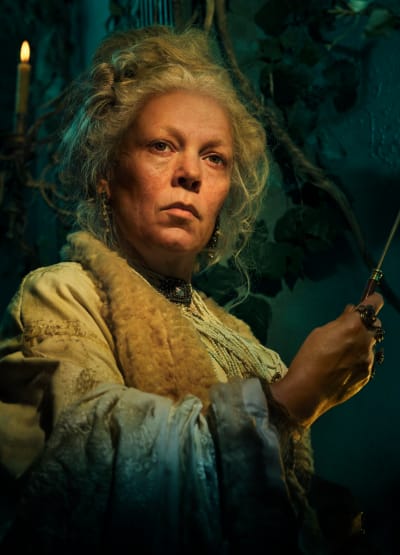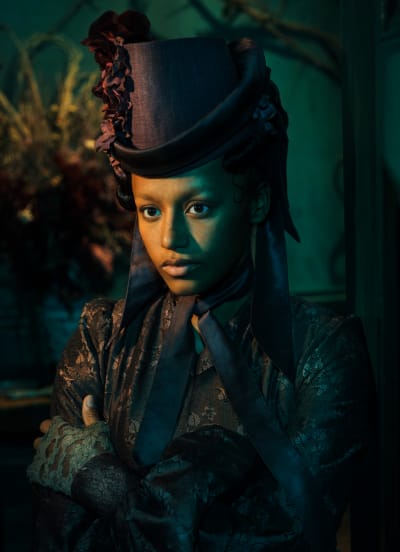Warning: This review contains spoilers from the first two episodes of Great Expectations.
There have been plenty of good, and even great, adaptations of the Charles Dickens classic Great Expectations.
Unfortunately, this is not one of them.
Most recently, Mike Newell directed a film version in 2012 starring Ralph Fiennes and Helena Bonham Carter.
BBC, one of the production companies behind this version (along with FX), produced a three-part miniseries in 2011-2012 starring Douglas Booth, Ray Winstone, and Gillian Anderson.
The most famous adaptation this side of the pond is probably Alfonso Cuarón’s modern version in 1998, starring Ethan Hawke, Gwyneth Paltrow, and Anne Bancroft.
News of Steven Knight’s version was exciting, particularly with the announcement of Olivia Colman as Miss Havisham.
If you’re going to remake something that has been adapted so many times, you have to approach it from a new vantage point.
Cuarón’s version, for example, didn’t always work, but it did something fresh with the material. What’s the point if you’re not going to bring a new vision to it, merely a new cast?
This version is bleak and plodding. Great Expectations Season 1 Episode 1 starts promisingly with an interesting hook and then takes us through a thrilling prison ship escape.
Pip: I’m guessing you’re the cause of the cannons.
Magwitch: One of the causes. There are two causes out on these marshes tonight. One’s a lost cause. The other, a just cause.
The journeys through the marshes, as well as Pip and Magwitch’s inevitable meeting, are done well, but Great Expectations Season 1 Episode 2 is a much duller affair.
Most of Episode 1 plays like a horror movie.
It’s eerie and dark and foreboding. The mist on the marshes is shot ominously and atmospherically.
The recurring, sweeping overhead shots of the wetlands are pretty striking. Well done to Dan Atherton, the director of photography, for achieving that all so expertly.
The imagery, too, of Pip wading through the muck is a clever thematic metaphor for the struggle he must endure as he makes his climb in society.
Estella (Chloe Lea) is suitably unnerving as she leads Pip into the seemingly haunted Satis House.
We don’t need ghosts here. Ghosts would be afraid to come.
Estella
Olivia Colman, who’s marvelous in everything from Fleabag to The Favourite, is alright here, but she lacks the bite and viciousness needed to make Miss Havisham interesting.
Look upon me. Look on what remains of me.
Miss Havisham
Portraying Havisham (and later Estella) as opium addicts makes sense, with the blend of luxury and decay, but it makes them appear exceedingly bored, which begs the question — why are they toying with Pip at all?
It’s hard to understand Havisham’s motivations since only dead eyes are behind them. She talks of love and vengeance, but it doesn’t land.
Love cheats. Love hurts. Do you understand, Pip? Love is unkind.
Miss Havisham
At least she looks fantastic — the costumes by Verity Hawkes are first-rate, not just Havisham’s (though she is the crown jewel in that respect) but across the board.
Tom Sweet, who portrays young Pip, is an engaging young actor and easy to root for.
As the older Pip, Fionn Whitehead comes across as more subdued, perhaps a little too subtle for his own good, and he has more chemistry with Biddy (Laurie Ogden) than Estella (Shalom Brune-Franklin).
Everybody knows you’re the cleverest person in school, but you’re a girl, so your cleverness is seen as… like horns on a horse. Odd, alarming, and of no practical use.
Pip
The whole Mrs. Gibbons scene is disturbing (though it’s obviously meant to be) but doesn’t really land because Pip doesn’t show any emotion there.
Pip is ambitious, but he feels like a blank slate sometimes. Since, at this point, we’ve spent more time with Sweet as Pip, it might just take some warming up to Whitehead’s adult version to connect with him.
As it is, we don’t really care about any of the characters or why they’re doing anything.
I believe once you have made your fortune, love is not so hard to find.
Pip
Havisham keeps incepting the idea of Pip falling in love with Estella into Pip’s mind, but we never really see or feel it happen. It’s implied that constant repetition, like all his other lessons, will lead him to believe it.
All of a sudden, Pip is in love with her, even though we’ve seen no indication of it. We need to feel something between Pip and Estella, and at the moment, it’s lacking.
Observe, absorb, improve.
Mr. Pumblechook
One strength of the show is the presence of Matt Berry, who is the perfect Mr. Pumblechook. He’s got the most iconic British voice since Alan Rickman (RIP).
Berry was made for Dickens and Shakespeare. If you’re adapting a British classic, put Matt Berry in there, and you know he’ll nail it. Let the man play Falstaff already. He’s very nearly wasted here.
The whipping scene, presumably there to add an edgy subplot and more layers between potentially one-dimensional characters, is a strange choice.
Whipping seems to be the kink of choice in period dramas of late — is it a British thing?
I don’t understand the reasoning behind giving Mr. Pumblechook and Sara (Hayley Squires) this secret kinky relationship, what it represents, or what it will come to. Was this in the novel? I certainly don’t remember it, and I feel like I would.
Despite this, the dynamic between Pip and Joe (Owen McDonnell) feels grounded and warm, particularly with the hostile Sara in there for some conflict. McDonnell and Squires are great foils for each other and play off each other well.
However, it doesn’t last, as we focus more on Pip’s lessons at Satis House.
Another fine actor who jolts everything to life is Ashley Thomas as Mr. Jaggers. He’s mysterious and menacing, riveting to watch in all of his scenes.
If the show follows the novel, we’ll have more of him in upcoming episodes, so that’s something to look forward to.
In his small amount of screen time, Thomas shows us exactly the kind of person Jaggers is, even if we don’t know all his secrets yet.
Keefus Ciancia’s music, particularly Mr. Jaggers’s underscore, is another highlight. It’s got a tinge of modernity but still supports the story, enhancing the squalid grittiness of the whole thing.
Great Expectations is a dense novel and does work better as a limited series rather than a film because it gives the material room to breathe and a chance for us to get to know the characters.
But, as it stands, two hours in, I’m still not sure what everyone’s motivations are or what is the point of it all.
Overall these two episodes offer little promise, though it has set up many characters well (though we still have some significant characters from the novel yet to meet).
There are still four episodes left, so perhaps these two will serve as a prologue, but it seems it’s taking its time without doing much deep mining.
All you have to do is everything I tell you to do.
Estella
It is a window. A small window, but you’ll crawl through it.
Biddy
It’s also relatively humorless. Yes, it’s a drama, but the novel has enough fun moments to keep it from being too consistently dreary.
This story is a classic for a reason, but it shows that a clear vision and strong direction are needed to make it sing 170 years after it was first published.
We’ll keep watching to see if it picks up, but we might sneak off to watch Cuarón’s 1998 version in the meantime.
What do you think, Fanatics? Do you love the story enough to be engaged with these new portrayals, or are you bored? Share your thoughts in the comments.
Great Expectations premieres on Hulu with two episodes streaming on Sunday March 26, 2023, and one episode each subsequent Sunday.
Mary Littlejohn Mary Littlejohn is a staff writer and critic for TV Fanatic. She loves television, cinema, and theatre (especially musicals!), particularly when it champions inclusivity, diversity, and social justice. Follow her on Twitter.

